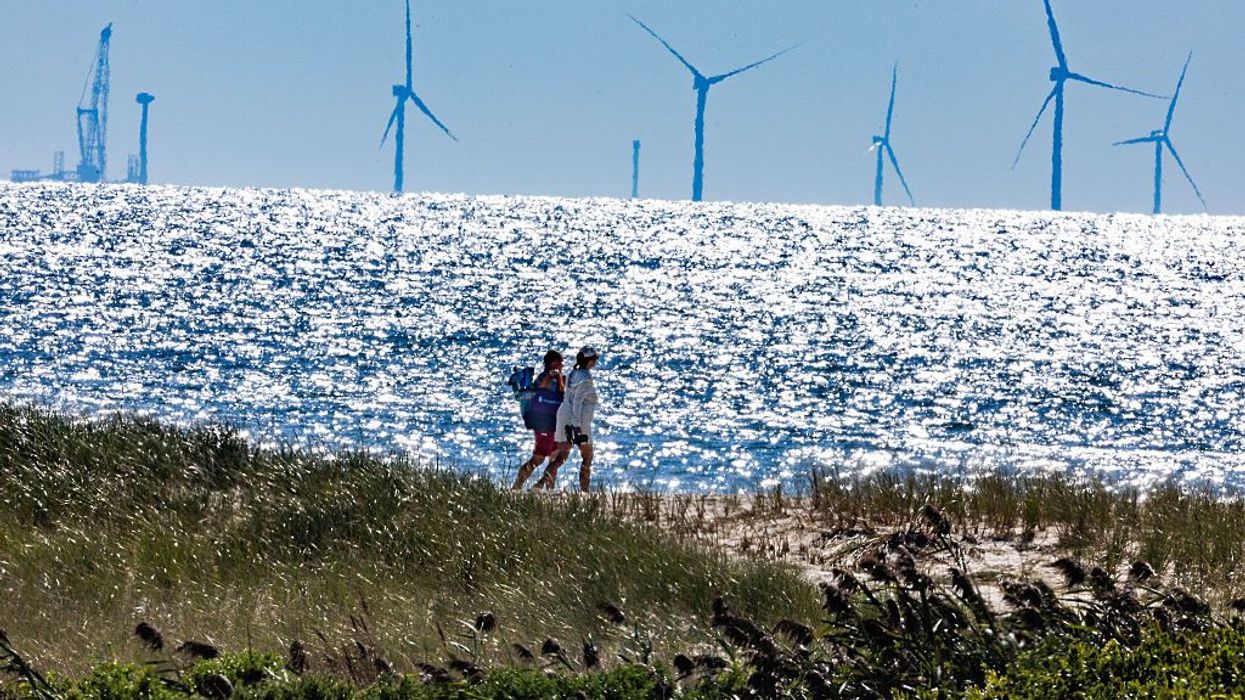Top Official's Disclosure Failure Underscores 'Naked Corruption' of Trump Interior Department
"Congress must say enough is enough and immediately open an investigation into just how deep the rot at Burgum’s Interior goes," said one critic.
Ethics experts this week raised red flags over a senior US Interior Department official's failure to disclose her family's financial interest in the nation's largest lithium mine, which opponents say was illegally approved by the Trump administration.
In 2018, Frank Falen, husband and former law partner of current Associate Deputy Interior Secretary Karen Budd-Falen—the third-highest ranking Department of Interior (DOI) official—sold the water rights from a family ranch in Humboldt County, Nevada to a subsidiary of Lithium Americas for $3.5 million.
The subsidiary, Lithium Nevada, wanted to build a highly controversial $2.2 billion open-pit lithium mine—Thacker Pass—that required both massive amounts of water and approval from the DOI. Falen's water rights sale also hinged upon DOI approving the mine.
At the time, Budd-Falen worked as the DOI's deputy solicitor for wildlife. In 2019, she sat down for a lunch meeting with Lithium Americas executives in the DOI cafeteria.
“They just happened to mention to me they were going to DC, and I was like, ‘Well, my wife is back there,’” Falen said of the Lithium Americas executives in a New York Times interview. “It was my fault because I just said, ‘Yeah, you should stop by and say hi to my wife.’"
The US Bureau of Land Management (BLM), part of DOI, approved the mine during the final days of Trump's first administration via an expedited process to circumvent lengthy environmental review. Indigenous and conservation groups, working together in the Protect Thacker Pass coalition, subsequently sued over what they argued was the mine's illegal approval.
A Lithium Americas spokesperson told the Times: "We haven’t worked directly with Karen Budd-Falen related to Lithium Americas, nor have we ever met with her in a formal capacity regarding our project.”
However, ethics experts question the financial ties between Falen and Thacker Pass and why Budd-Falen did not publicly disclose her husband's $3.5 million water deal.
“Did she have any oversight of the environmental review process regarding Thacker Pass?" Kyle Roerink, executive director of the Great Basin Water Network, a Nevada conservation group, said during an interview last week with High Country News. “If she didn’t recuse herself, it would fly in the face of the impartial decision-making that Americans expect from government officials.”
Doug Burgum’s third-in-command Karen Budd-Falen made millions after the Trump administration fast-tracked what’s now the nation’s biggest lithium mine. Illegal, conflict of interest, corruption, or whatever you want to call it, there’s a rot in our Interior Department. https://nyti.ms/3LfBVWM
[image or embed]
— Save Our Parks (@saveourparks.us) January 5, 2026 at 1:00 PM
Robert Weissman, co-president of the watchdog group Public Citizen, told the Times: "It’s not clear that Karen Budd-Falen knew she had a conflict, but it’s clear she should have known, and that the public should have known. It’s also clear that she should not have met with Lithium Nevada."
Green groups and Indigenous peoples—including the the Reno-Sparks Indian Colony, Burns Paiute Tribe, and Summit Lake Paiute Tribe—fiercely oppose the mine. Opponents argue the project lacks consent, had a rushed environmental review, and that the mine would threaten wildlife and water and desecrate sacred Indigenous sites.
Thacker Pass, whose name means "rotten moon" to all three tribes, is also the site of an 1865 massacre of dozens and perhaps scores of Northern Paiute men, women, and children by US Cavalry troops. The tribes want it listed on the National Register of Historic Places.
In September, the Trump administration and Lithium Americas reached a deal under which the government will take a 5% equity stake in both the company and the Thacker Pass mine in return for Department of Energy loan money as demand for lithium—a key component of electric vehicle batteries, cellphones, and laptops—is surging worldwide.
The apparent conflict of interest involving Budd-Falen continues a history of corruption at Trump's DOI in both the president's first and current terms. First-term Interior Secretary Ryan Zinke's tenure was plagued by ethics violations and abuse of office. Federal investigators found that Zinke lied to them about his involvement in private land deals while in office, had improper relationships with developers, and improperly used taxpayer funds to pay for chartered aircraft and helicopter flights.
Zinke resigned in 2019. His eventual successor, David Bernhardt, was called a "walking conflict of interest" and "as corrupt as it gets" due to his prior work as a fossil fuel lobbyist.
Budd-Falen could also benefit from the Trump administration's invasion of Venezuela. According to reporting from Public Domain's Jimmy Tobias and Chris D'Angelo, Budd-Falen or her husband hold tens of thousands of dollars worth of stock in fossil fuel companies including ExxonMobil and pipeline firm Enterprise Products Partners.
Responding to Budd-Falen's failure to disclose her family's interest in the Thacker Pass mine, Save Our Parks spokesperson Jayson O’Neill said Monday:
This raises substantial questions about the lack of transparency, clear conflicts of interest, and potential illegal self-dealing at the Interior Department under [Interior Secretary] Doug Burgum. It wasn’t enough for Burgum’s top lieutenant, Karen Budd-Falen, to hold tens of thousands of dollars in Big Oil stocks while advancing their interests at Interior. Now we find out that she worked behind the scenes with Lithium Americas’ representatives and lobbyists, which received fast-track approval, making her and her husband millions.
"This naked corruption and self-dealing is par for the course at Doug Burgum’s Interior Department, which is more focused on self-serving and special interests than the American people and our outdoor heritage," O'Neill added. "Congress must say enough is enough and immediately open an investigation into just how deep the rot at Burgum’s Interior goes.”


